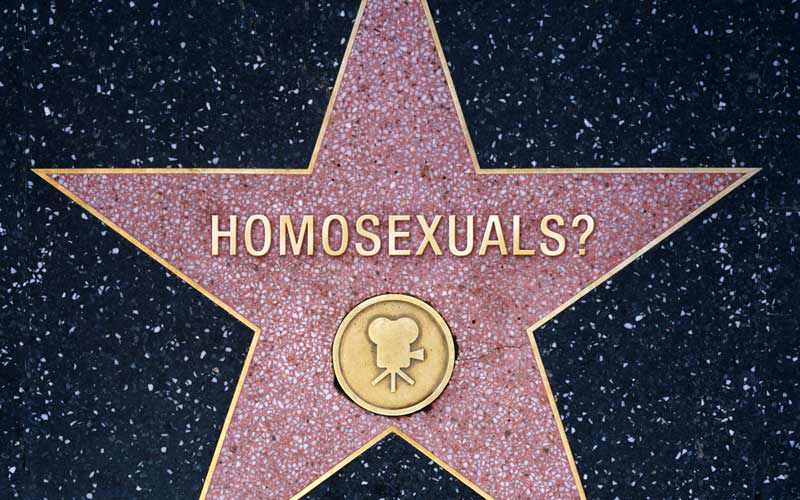 TD Original
TD Original
Year of the Queer: Hollywood and Homosexuality
Feb 27, 2006 Truthdig's Larry Gross, a pioneer in the field of gay studies, argues that for all the hoopla surrounding "Brokeback Mountain" and this year's spate of gay-themed films, there is little about them that upends Hollywood conventions or challenges popular ideas about homosexuality. "Hollywood and much of the media may be awash in liberal self-congratulation," Gross writes, "but they--and we--are also soaking in the familiar hypocrisy of homophobia." Update: Down to the WireGross argues that for all the hoopla surrounding "Brokeback Mountain" and this year's spate of gay-themed films, there is little about them that upends Hollywood conventions or challenges popular ideas about homosexuality. 1 2 3 4 5As the crescendo of Hollywood's award season builds toward the climax of Oscar night, only the resolutely oblivious could fail to have noted that this is the year of the queer. Or, to put it both more politely and more to the point, the year of "gay for pay" actors. The announcement of the Oscar nominations, with eight going to "Brokeback Mountain," gave entertainment reporters their expected lead: "The star-crossed cowboys of 'Brokeback Mountain' emerged as Oscar trailblazers, the story of doomed love between two men poised to become the first gay-themed film to lasso the top prize."
For all the hype and hoopla one might think that this was something new. Alas, truth be told -- not one of Hollywood's specialties -- there is little that is new in this year's "breakthroughs." Still, every time we go around the familiar track there are differences, and they are worth noting even while we experience dj vu all over again.So, let's start with this year's "explosion of Oscar-baiting performances in which straight actors play gay, transvestite or transgender characters" as Caryn James put it in The New York Times (Nov. 20, 2005). Philip Seymour Hoffman has already won Golden Globe and Screen Actors Guild awards for his portrayal of Truman Capote, the most obviously gay writer of the 20th century, if we forget that Oscar Wilde died in 1900. Less acclaimed, Peter Sarsgaard plays a gay Hollywood screenwriter and Campbell Scott a closeted studio executive in "Dying Gaul." There is an understated but plot-crucial gay role played by Hubert Kound in "The Constant Gardener." The ever-popular trans-front is well covered by Cillian Murphy's Irish transvestite in "Breakfast on Pluto" and, among the award-magnetic roles, Felicity Huffman's Golden Globe-winning portrayal of a man undergoing sex reassignment in "Transamerica." But without doubt, the most heavily publicized and discussed performances of this year's crop are those of Jake Gyllenhaal and Heath Ledger in "Brokeback Mountain," the so-called gay cowboy movie that won best picture honors at the Venice Film Festival."Brokeback Mountain" is based on a New Yorker short story by Annie Proulx that was published in 1997 and almost immediately became known around Hollywood as a hot property that somehow never quite got off the drawing board. The option was held by James Schamus, then by Scott Rudin, who wanted to make the film with openly gay director Gus Van Sant, after "Good Will Hunting" gave him big-screen clout; not surprisingly, Hollywood rumor cast Ben Affleck and Matt Damon as the likely leads. The project never got going, and eventually was picked up by Schamus, with director Ang Lee.
The saga of a strong gay-themed plot that somehow can't get made is a Hollywood staple, and those who've followed these tales will recall the fate of Patricia Nell Warren's 1970s bestseller "The Front Runner" and Randy Shilts' biography of Harvey Milk, "The Mayor of Castro Street," both optioned many times but still not produced. Each time there is a successful gay-themed studio film there is hope for it and other queer properties, and "Brokeback," too, has unleashed a flurry of optimism on this front. But, of course, everyone's waiting to see what happens at the box office, as well as at the awards ceremonies.
Which brings us back to this year's array of gay characters and plots. New? Different? Frank Rich in The New York Times proclaimed a "runaway phenomenon" that signals a turning point in the "cultural war" of our times, and Newsweek critic Sean Smith sees in it the "potential to change the national conversation and to challenge people's ideas about the value and validity of same-sex relationships. In the meantime, it's already upended decades of Hollywood conventional wisdom."
Still, there's much here that's neither new nor different and that neither challenges the public's ideas nor upends Hollywood conventions. When it comes to the recipe for handling gay themes and the sexuality of movie stars, "Brokeback Mountain" is decidedly familiar territory. Let's count the ways.
You need to be a supporter to comment.
There are currently no responses to this article.
Be the first to respond.